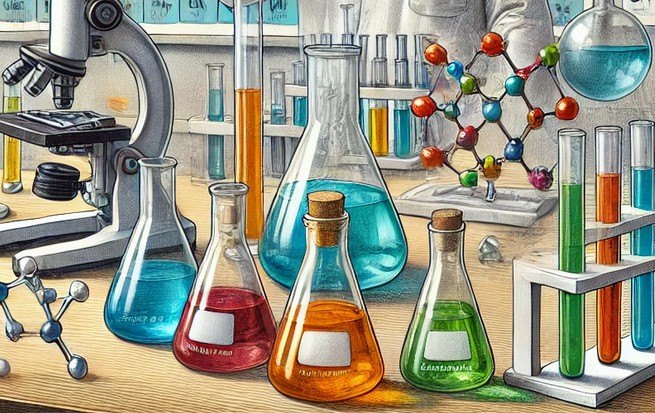The course is designed to provide a continued introduction to organic chemistry as a complement to the course Organic Chemistry, basic concepts and practice (KD1230). The emphasis is on imparting understanding of organic chemical principles and reactions, and provide sufficient knowledge to be able to absorb higher courses in organic chemistry.
Short course description:
- Models for estimation of reactivities (frontier orbital theory / hard-soft acid-base concept)
- Reaction types
- Radical chemistry
- Conjugation and aromaticity
- Conjugated systems and aromatic substances, structure and reactivity
- Pericycliska reactions
- Basic organometallic chemistry
- Oxidation and reduction
- NMR spectroscopy
- Carbonyl compounds and analogous substances
- Carboxylic acids, their derivatives and analog compounds
- Reactivity and synthetic methods for common functional groups
- Green and sustainable organic chemistry
- Information retrieval in SciFinder and Reaxys
- Basic laboratory techniques: green chemistry, multistep synthesis, chromatography, spectroscopy
Detailed course description:
- describe and classify the main organic reaction types
- describe the reactivities and basic synthesis methods for common functional groups
- describe the concepts of conjugation, aromaticity and pericyclic reactions
- describe the reactivities and synthesis methods regarding conjugated systems
- describe the reactivities and synthesis methods in aromatic synthetic chemistry
- account for the structures and properties of carbonyl compounds and their analogs
- describe the reactivities and synthesis methods for carbonyl compounds and their analogs
- describe the concepts of oxidation and reduction, as well as oxidative and reductive synthesis methods
- describe specific synthesis methods in natural product chemistry
- account for structural analysis using NMR spectroscopy
- analyze and evaluate organic chemical reactions and processes from a sustainable development perspective based on the principles and methods of the green chemistry concept
- search for information in databases and from the chemical literature, and extract relevant information
- summarize and process the extracted information in a written report
- perform advanced laboratory techniques: enhanced synthesis methodology, green chemistry, chromatography
- analyze compounds and reaction outcomes with NMR spectroscopy, and IR spectroscopy
